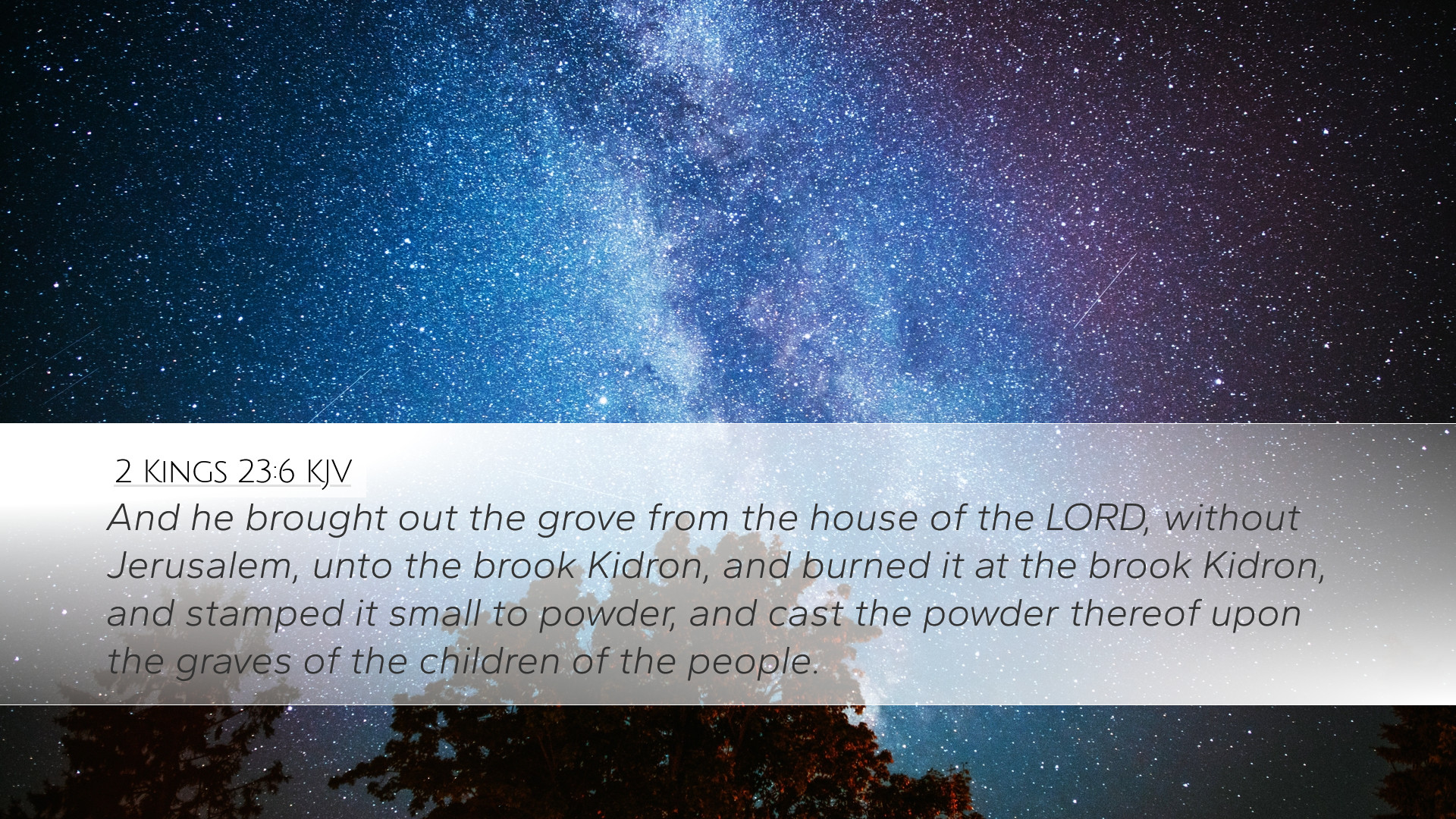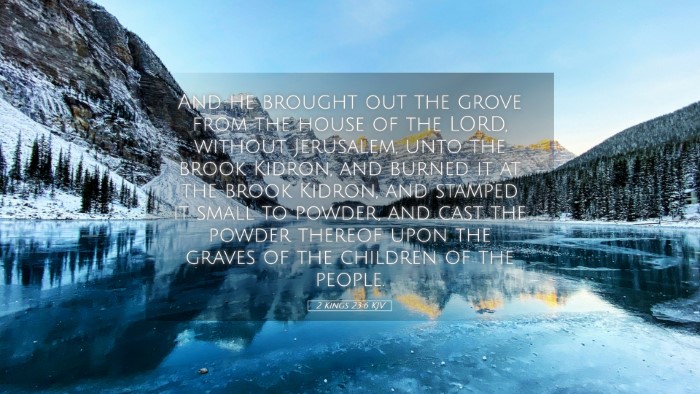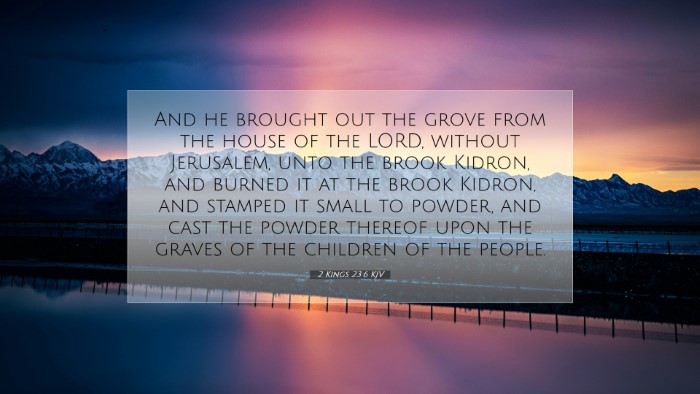Commentary on 2 Kings 23:6
Bible Verse: "And he brought out the grove from the house of the Lord without Jerusalem, unto the brook Kidron, and burned it at the brook Kidron, and stamped it small to powder, and cast the powder thereof upon the graves of the children of the people."
Introduction
This verse is part of the larger reformative actions taken by King Josiah as recorded in 2 Kings 22-23. The context reveals the significant reforms aimed at restoring true worship in Judah by eradicating idolatrous practices. The verse highlights Josiah's zeal for the Lord, reflecting the seriousness with which he approached the purification of worship in Israel.
The Grove and Idolatry
- Understanding the Grove: The "grove" or "Asherah" was a pole or image associated with the Canaanite goddess Asherah, often connected with fertility worship. Matthew Henry notes that these rites were directly opposed to God’s commandments, rooted in idolatrous practice that not only captured the hearts of the people but brought about divine judgment.
- Josiah's Actions: Albert Barnes emphasizes that Josiah's removal of the grove indicates a comprehensive commitment to return to exclusive worship of Yahweh. This action signifies not just symbolic gestures but a coalitional effort to eliminate anything that compromised the purity of worship.
- Societal Impact: Adam Clarke points out the detrimental societal impacts of such idols—leading the people into further sin and moral decay. By destroying these idols, Josiah aimed to restore not just religious observance but also societal values.
The Significance of the Brook Kidron
- Location and Symbolism: Kidron served as a geographical boundary and symbolically as a threshold separating the holy from the secular. Henry describes the act of burning the grove at the brook Kidron as symbolizing the complete elimination of idol worship from the presence of the Lord.
- Burning and Dust: The act of burning and turning the grove into powder underscores the finality of the destruction. Barnes elaborates that casting the powder onto the graves signifies how the dead—who perhaps followed such idols—would be honored no longer. It serves as a stark warning against the practices that led to their demise.
- Graves of the Children: Clarke reminds us that the mention of "the graves of the children" implies that the worship of Asherah had long-lasting repercussions, affecting future generations. Josiah's action serves as both judgment and purification for a national sin.
Theological Reflections
- God's Holiness: This act illustrates the holiness of God and the seriousness of idolatry. As noted by Henry, it reveals that God will not share His glory with any other. The eradication of the grove demonstrates that true worship demands full commitment to God.
- Righteous Leadership: Josiah’s reforms provide a model of righteous leadership that is crucial for theological discourse. Barnes points out that leaders in the church today should emulate Josiah's determination to uphold God’s standards.
- Symbol of Renewal: The burning of the grove can be seen as a symbolic act of renewal. Clarke argues that it reflects the spiritual revival that Josiah sought to elicit in the hearts of his people, calling them back to covenant fidelity.
Practical Applications
- Personal Purification: In a contemporary context, this verse calls believers to examine any "groves" in their lives—idols that compete with their devotion to God. It invites personal reflection on the barriers to genuine worship.
- Community Responsibility: It challenges church leaders and congregations to actively remove practices and influences that lead to spiritual compromise. As Josiah removed idolatry, modern-day believers are called to engage in community purification efforts.
- The Weight of History: The recognition that past generations can impact current spiritual health demands an awareness of our communal sin and responsibility. The legacy of idolatry cautions against complacency in faith practice.
Conclusion
2 Kings 23:6 serves as a potent reminder of the need for rigorous fidelity to God amidst pervasive idolatry. Josiah's example inspires leaders and believers alike to undertake serious spiritual reforms in their personal and communal lives. The thoroughness of Josiah’s actions exemplifies the necessity of addressing the root causes of compromise to honor God wholly in worship and practice.


